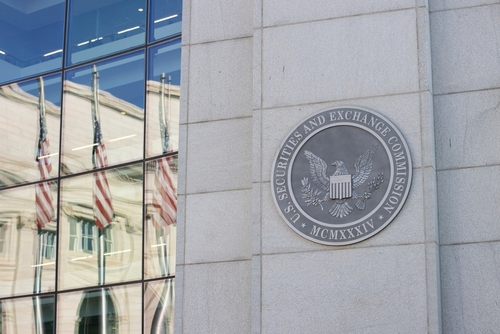
On August 23, 2023, the U.S. Securities and Exchange Commission (the “SEC”) adopted new rules and amendments under the Investment Advisers Act of 1940 (the “Advisers Act”), the purpose of which is to enhance regulation of private fund advisers (collectively, the “Private Fund Adviser Rules”)[i], as stated by the SEC chair Gary Gensler the Private Fund Adviser Rules “will promote private fund advisers’ efficiency, competition, integrity and transparency”.
The Private Fund Adviser Rules impose many new obligations and introduce new prohibitions and restrictions that are likely to have a significant impact on existing business and market practices, and impose new administrative and compliance burdens and costs, across many registered and exempt private fund advisers and ultimately on the private funds themselves as well as the entire private funds industry.
We briefly highlight hereinbelow the main rules in the framework of the new Private Fund Adviser Rules[ii]:
- Preferential Treatment Rule (applicable to all Private Fund Advisers (registered or exempt))
The Preferential Treatment Rule prohibits private fund advisers from providing preferential treatment to investors in a private fund (typically effected through the prevalent use of side letters), where the fund adviser reasonably expects that such preferential treatment would have a material, negative effect on other investors in the private fund, with respect to: (a) certain redemption rights from the fund, unless the ability to redeem is required by applicable law or the adviser offers the preferential redemption rights to all other investors without qualification, or (b) certain preferential information about portfolio holdings or exposures, unless such preferential information is offered to all investors. While the SEC noted that such material, negative effect on the other investors would be more readily discernible in liquid funds that offer redemption rights (rather than illiquid funds), the SEC refrained from limiting this prohibition only to liquid funds.
In addition to the specific prohibitions set forth above, private fund advisers are generally prohibited from providing other types of preferential treatment to investors unless the adviser provides written notice (a) of preferential material economic terms already given to current investors prior to an investor’s investment in the private fund; (b) of any other preferential terms to all investors after the investment in the fund (either (x) after the end of fundraising period (for illiquid funds) or (y) after the relevant investor has been admitted to the fund (for liquid funds)); and (c) at least annually which notice shall include a detailed description of any preferential terms made available to investors since the last notice. The SEC noted that a fund adviser could comply with this requirement by providing copies of side letters (with names of investors redacted) or providing a summary of the preferential terms granted to other investors in the fund.
2. Restricted Activities Rule (applicable to all Private Fund Advisers (registered or exempt))
To address certain conflicts of interest that have the potential to lead to investor harm, the Private Fund Adviser Rules include a new rule that restricts all private fund advisers from engaging in the following activities that are contrary to the public interest and the protection of investors: (a) charging or allocating to the private fund fees or expenses associated with an investigation of the private fund adviser without disclosure and consent from fund investors (i.e., approval by a majority in interest of fund investors that are not related persons of the adviser), provided, however, that an adviser may not charge fees or expenses related to an investigation that results in a court or governmental authority imposing a sanction for a violation of the Advisers Act and ancillary rules; (b) charging or allocating to the private fund regulatory, examination, or compliance fees or expenses of the adviser, unless the same are disclosed to investors; (c) reducing the amount of an adviser carried interest clawback by the amount of certain taxes, unless the adviser discloses the pre-tax and post-tax amount of the clawback to investors; (d) charging or allocating fees or expenses related to a portfolio investment on a non pro rata basis when there are multiple vehicles or clients advised by the same adviser or its affiliates investing in the same portfolio investment, unless the allocation approach is fair and equitable and the adviser discloses in advance the non-pro rata charge and a description of how the allocation approach is fair and equitable under the circumstances; and (e) borrowing or receiving an extension of credit from a private fund client without disclosure to, and consent from, fund investors.
3. Quarterly Statement Rule and Private Fund Audit Rule (applicable only to Private Fund Advisers registered with the SEC)
Quarterly Statement Rule
The Quarterly Statement Rule requires SEC-registered private fund advisers to distribute to investors a quarterly statement that includes certain detailed fund-level information regarding performance, the cost of investing in the private fund, fees and expenses paid by the private fund, as well as certain compensation and other amounts paid to the adviser.
Private Fund Audit Rule
A SEC-registered private fund adviser is required to cause each private fund it advises to undergo an annual financial statement audit.
4. Adviser-Led Secondaries Rule (applicable only to Private Fund Advisers registered with the SEC)
A registered private fund adviser is required to obtain a fairness opinion or a valuation opinion when offering existing fund investors, the option between selling their interests in a private fund and converting or exchanging their interests in the private fund for interests in another vehicle advised by the adviser or any of its related entities. The rule also requires the adviser to distribute to the private fund’s investors a summary of any material business relationships the adviser has had with the independent opinion provider.
5. Books and Records Rule Amendments (applicable only to Private Fund Advisers registered with the SEC)
To facilitate the ability of the SEC to assess a registered adviser’s compliance with the rules, the new rules adopted include amendments to the books and records rule under the Advisers Act for registered private fund advisers.
6. Compliance Rule Amendments (applicable to all Registered Advisers)
The Private Fund Adviser Rules include amendments to the compliance rule under the Advisers Act requiring all registered advisers, including those that do not advise private funds, to document in writing the required annual review of their compliance policies and procedures.
Offshore Advisers
The SEC notes that none of the Private Fund Adviser Rules will apply to advisers that have their principal office and place of business outside the United States (“offshore advisers”) to the extent that they advise non-U.S. domiciled funds (regardless of whether those funds have U.S. investors). However, the aforesaid exemption would not extend to an offshore adviser’s activities in advising any U.S. domiciled funds (e.g., a Delaware limited partnership), in which case the rules would apply to any U.S. domiciled fund activities.
Compliance Period; Legacy Status
The final rules go into effect 60 days after publication in the Federal Register. With respect to the Preferential Treatment Rule, the Restricted Activities Rule and the Adviser-Led Secondaries Rule, the compliance dates are – for advisers with U.S.$1.5 billion or more in private funds assets under management, 12 months after the date of publication in the Federal Register; and for advisers with less than U.S.$1.5 billion in private funds assets under management, 18 months after the date of publication in the Federal Register. With respect to the Private Fund Audit Rule and the Quarterly Statement Rule, the compliance date will be 18 months after the date of publication in the Federal Register. Compliance with the amended Advisers Act compliance rule will be required 60 days after publication in the Federal Register. However, the SEC has granted legacy status to existing private funds with respect to the prohibitions under the Preferential Treatment Rule and certain restricted activities that would require investor consent under the Restricted Activities Rule, meaning the SEC will not require governing agreements (including side letters) that were entered into prior to the compliance date to be amended. However, the disclosure requirements for preferential treatment will still apply.
This update is provided for general informational purposes only and may not be relied upon in any specific circumstances without appropriate legal advice. Shibolet & Co. is not licensed to practice law outside Israel and the matters discussed herein require specific U.S. legal advice.
[i] United States Securities and Exchange Commission. Final Rule. Private Fund Advisers; Documentation of Registered Investment Adviser Compliance Reviews (August 23, 2024), 17 CFR Part 275, https://www.sec.gov/files/rules/final/2023/ia-6383.pdf
[ii] United States Securities and Exchange Commission. Private Fund Adviser Reforms: Final Rules. Fact Sheet, https://www.sec.gov/files/ia-6383-fact-sheet.pdf
This update is provided as general information only and may not be relied upon in any individual case without additional legal advice.









